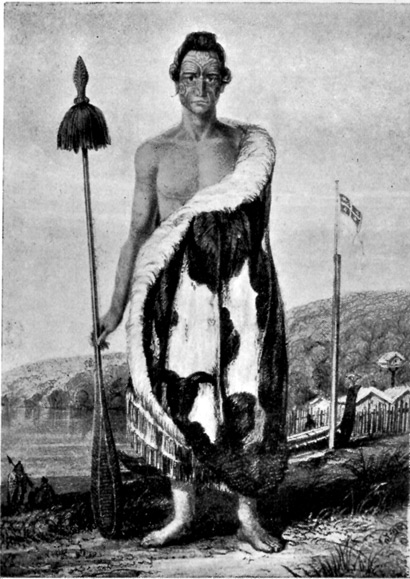MAORI (MOW-ree)
1.
Indigenous people of New Zealand
2. Language of indigenous
people of New Zealand
Common clues: Language that gave us
“kiwi”; Polynesian
New Zealander; New Zealand native; Austronesian language
Crossword
puzzle frequency:
3 times a year
Frequency
in English language:
23600 / 86800
Videos: Maori
culture
Māori is the name of the indigenous people of New Zealand, and their language.
The word māori means "normal" or "ordinary" in the Māori language and denotes mortal beings as distinct from the gods. "Māori" has cognates in some other Polynesian languages such as Hawaiian in which the word maoli means native, indigenous, real or actual. It is also the name of the people and language of the Cook Islands, referred to as Cook Islands Māori.

Te
Puni, Maori Chief
New Zealand was one of the last areas of the planet to be reached by humans. Polynesian voyagers are believed to have migrated to what is now New Zealand from eastern Polynesia in the latter part of the 1st millennium. Māori origins therefore cannot be separated from those of their Polynesian ancestors (for more information see Polynesian culture). Archaeological evidence suggests there were probably several waves of migration to New Zealand between 800 and 1300. Māori oral history describes their arrival from Hawaiki (a mythical homeland in tropical Polynesia) by large ocean–going canoes (waka). During the 19th and early 20th centuries, the idea arose that Māori had voyaged to New Zealand in the so-called 'Great Fleet of 1350AD' which claims that seven canoes arrived simultaneously. More recent research has revealed that this concept originated with European researchers including Percy Smith who attempted to cobble together various unrelated Māori legends. The spurious fleet scenario was then accepted by some Māori including Sir Peter Buck (Te Rangi Hiroa), and won general acceptance until it was debunked in the 1960s by the research of David Simmons and others. In fact nowhere in the authentic voyaging traditions is there an account of several canoes all arriving together at one place and time. Migration accounts vary among Māori tribes or iwi, whose members can identify with the different waka in their genealogies or whakapapa. There is no credible evidence of human settlement in New Zealand prior to the Māori voyagers; on the other hand, compelling evidence from archaeology, linguistics and physical anthropology indicates that the first settlers were East Polynesians who became the Māori.
This article is licensed under the GNU Free Documentation License. It uses material from the Wikipedia article "Maori".
|
|